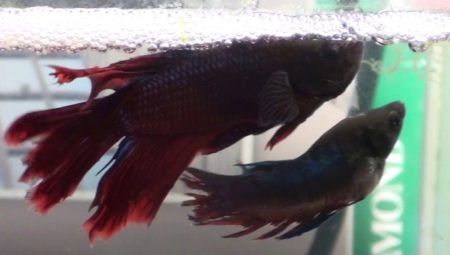The beauty and bright color of these unusual fish always attracts the attention of true lovers and connoisseurs of aquarium fish. The fish cockerel will undoubtedly be the decoration of any aquarium. Having seen representatives of this species, the question often arises of how to distinguish a male from a female. Let's talk about it right now.
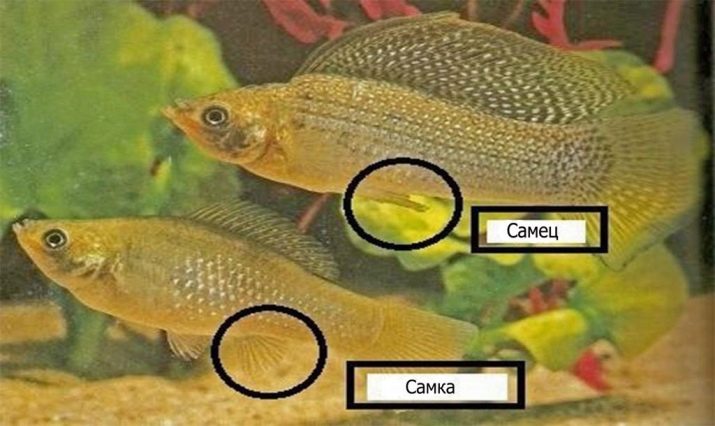
Structural differences
The unusual appearance, bright color and brisk nature of these aquarium fish attracts many. Perhaps these are the most popular aquarium fish that do not leave anyone indifferent. Many believe that only professionals can distinguish a female from a male. But in fact, even a novice aquarist can easily cope with this. The main thing is to know exactly what their differences and features are.
If you look closely, you can understand that the male looks a little different than the female. Cockerel fish differ in their structure, size, behavior and not only. First, pay attention to the structure of the pet. Pay attention to the length of the fins. In male cockerels they are much longer. Female cockerel fish has shorter fins. In addition, boys have larger fins and are somewhat reminiscent of sails. In adults, after about 6 months, they become even larger, wavy and beautiful.
In the event that you have a short-tailed look, then you need to pay attention to the anal fin. In male cockerels, it is more elongated and elongated, in contrast to females. In girls, it is more rounded and short.
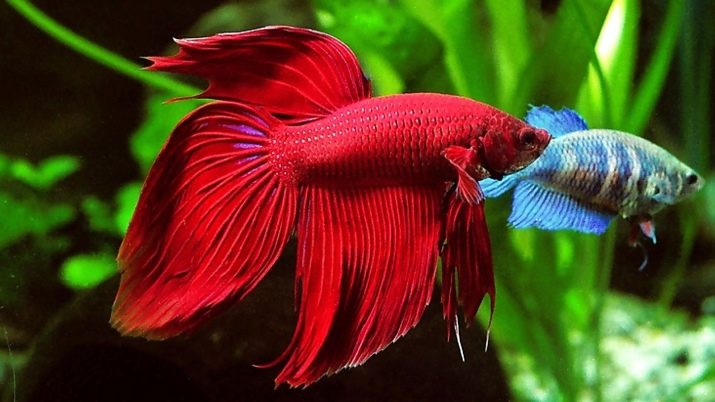
If we continue to talk about the structural features, it is worth noting that an adult female can be distinguished by the presence of an ovipositor.As a rule, this organ is located near the anus of the female, but in young specimens it is not yet developed. Oviposition becomes noticeable only in girls who are already 3 months old.
How to find out by body size?
It is possible to distinguish that in front of you it is a male fish cockerel according to the size of its body. Males, as a rule, are more “slender” and larger. In the area of the tail, the boys body tapers slightly, but in the area of the head, on the contrary, it thickens. In addition, their body is more flexible, and this is immediately visible during the active movement of the fish in the aquarium.
Females have a denser body, one might say, stocky. In addition, in girls of males it is distinguished by relief. If you look closely, you can see a slight bend at the front of her abdomen.
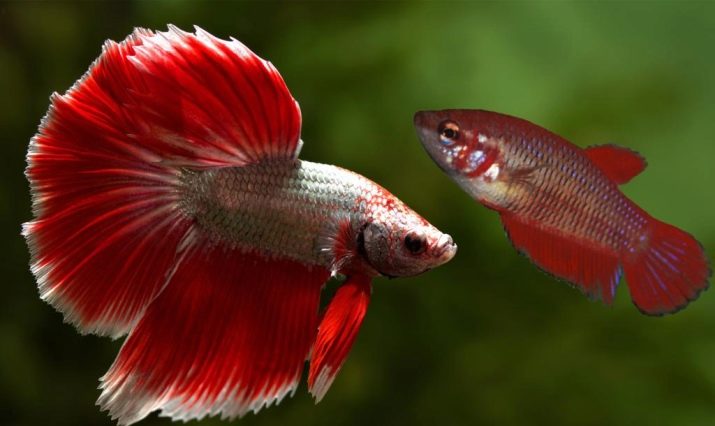
Behavioral Sex Determination
Cockerel fish is an active and even aggressive species of aquarium fish. Such a fish is considered fighting, and in the aquarium you can often see real fights. Usually the male beats his relatives, but sometimes it can attack other species of fish that live with him in the same aquarium.
But it is worth noting that and the female can show aggression in a certain period. During spawning, females become the most aggressive. They take menacing poses, revealing fins and protruding gills. In addition, girls can also arrange a real fight. therefore during spawning, it is very difficult to distinguish a female from a male only in character.

How to determine by color?
Undoubtedly, all representatives of this species are very beautiful and vibrant. But the girl, nevertheless, differs in her color. Males have a brighter color. In that case, if the male is kept in favorable and comfortable conditions, then his color becomes even brighter and more attractive. Against the background of such a male, the females seem more faded.
The female can also have a very bright color. But this is not a natural state for her. As a rule, they become brighter during times of stress. For example, if you move it to a new aquarium, to a medium unfamiliar so far, you will notice how its color changes, becomes brighter. In such a period, it will be very difficult to distinguish a girl from a boy.
During spawning, the appearance of the female may change. For example, if a girl is of a dark color, then in this period vertical stripes appear on her body. This indicates that it is ready for mating. If the fish is a light shade, then during this period it does not change its color.
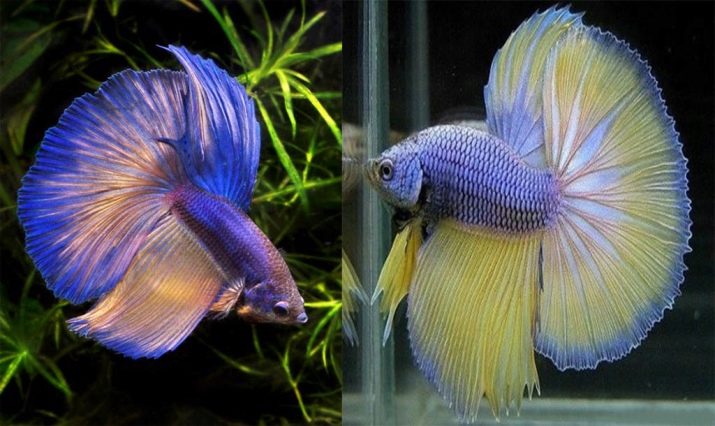
On the behavioral characteristics of female cockerels, see further.
